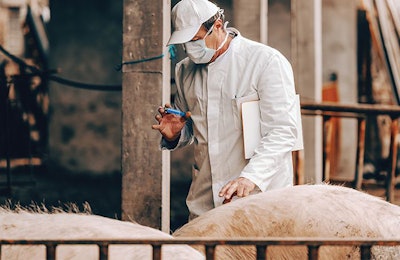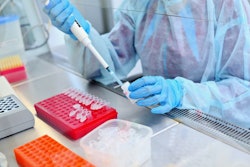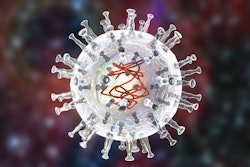
Tests show vaccine candidate does not revert to virulence, passing a ‘critical milestone’
Scientists with the U.S. Department of Agriculture’s (USDA) Agricultural Research Service (ARS) said a vaccine candidate for African swine fever (ASF) passed an important safety test required for regulatory approval, moving the vaccine one step closer to commercial availability.
The test is an important milestone as part of a series of safety studies. These new results show that USDA’s vaccine candidate does not revert to its normal virulence after being injected into swine. This “reversion to virulence” test is required to ensure that the vaccine’s weakened form of the ASF virus does not revert to its original state.
“This is a critical milestone for the ASF vaccine candidate. These safety studies bring this vaccine one step closer to being available on the market,” said senior ARS scientist Manuel Borca.
These safety studies are necessary to gain approval for use in Vietnam and eventually in other countries around the world. Future commercial use, however, will depend on approval from the department of animal health within each requesting country.
Although the virus is causing profound economic losses to the swine industry, there have not been any outbreaks in the United States. The highly contagious ASF virus spread from Africa to the Republic of Georgia in 2007, and has since swept through Central Europe and Asia, before reaching the Dominican Republic in 2021. The virus is unable to transmit from pigs to humans.
“It is very hard to predict how selective pressure can cause a live attenuated vaccine to return to virulence,” said senior ARS scientist Douglas Gladue. “In the case of this particular vaccine candidate, ASFV-G-DI177L, we deleted a gene, which makes it difficult for the virus to simply add the gene back. So, we expected reversion to its original form to be unlikely, but the test still has to be performed.”
An attenuated vaccine strain retains much of its genetic makeup and could genetically change when exposed to various external circumstances. All live attenuated vaccines are weakened versions of a virus and can be used as a vaccine because the live vaccine virus will not cause illness and can still provide immunity.
This research is highlighted in this month’s issue of Viruses. The vaccine candidate was recently selected by NAVETCO for commercial development in Vietnam. NAVETCO has partnered with ARS on ASF vaccine research and development since 2020. Further development will continue once the vaccine candidate receives regulatory approval from Vietnam.

















